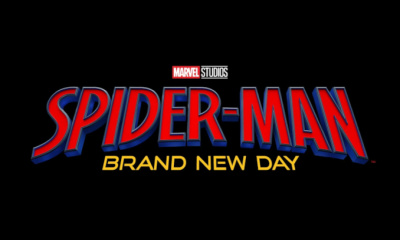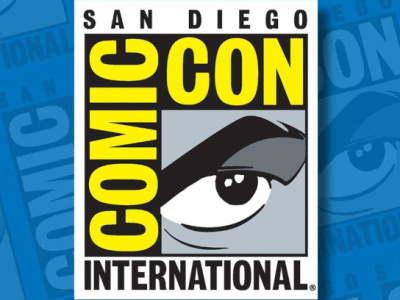 What does consolidation and change in the media distribution universe mean for pop culture and entertainment properties?
What does consolidation and change in the media distribution universe mean for pop culture and entertainment properties?Hot on the heels of Netflix’ much-ballyhooed revival of Arrested Development comes news that Amazon has released the first batch of its original programming, including a political comedy called Alpha House developed by cartoonist Garry Trudeau. Hulu is getting into the act as well with a slate of direct-to-stream shows including an animated sitcom called Mother Up! starring Eva Longoria.
It’s no surprise that the leaders of the digital content distribution revolution are getting into the content production business as well. Cable giant Comcast completed its acquisition of NBC Universal earlier this year, creating a vertically-integrated monolith capable of piping programming to more than 24 million customers in North America via traditional cable TV and emerging broadband/on-demand channels. Hulu is now in bed with Verizon. Amazon is partnered with Warner Brothers. How soon before Netflix aligns with Apple? In the eat-or-be-eaten media world of the 2010s, merging content production and distribution is a survival imperative.
In the short term, this corporate feeding frenzy is great news for the creators and consumers of pop culture and cult entertainment across all media. The watchword for all of these new ventures is audience engagement, but the concept of the mass audience died with the Big 3 networks. Today it’s all about reaching the niche, and to do that they need social buzz, a loyal and well-defined demographic, and rabid fans to get the ball rolling.
Rabid, social and engaged. Does that sound familiar? Because of the money and momentum in this space, the comics culture audience is about to get popular with a whole new set of media suitors. That means more of the stuff we like, done the way we like it. If the recently Kickstarted geekgasm Veronica Mars revival project ever gets off the ground, don’t be surprised if it lands on one of these platforms rather than the old-school small screen.
This quest for targeted engagement is why Amazon’s crowdsourced original content program, Amazon Studios, runs the gamut of projects ranging from kid-friendly originals (Annebots, Creative Galaxy) to programs aimed squarely at nerd-adjacent demos like software developers (Betas) and political junkies (Alpha House), with the aforementioned comics connection via Doonesbury). They want fans, not just viewers.
What’s also clear is that original video programming is not the only, or even the best, way to reach this audience. At best, video is one leg of a transmedia storytelling strategy that spans games, books, comics and social channels. Just about everyone in the entertainment industry is thinking along these lines now. It’s inevitable that new business models are spinning up to support cross-platform production and distribution.
Amazon Studios stuck its toe in the pond of original comics publishing with "Blackburn Barrow," a digital-direct Western series by industry veterans Ron Marz and Matthew Dow Smith, based on a screenplay submitted to Amazon by Jay Levy. Marvel has started distributing its motion comics and limited animation series (Black Panther, Iron Man Extremis, etc.) on Netflix; will actual comics or more aesthetically-accomplished hybrids be next? ComiXology successfully launched its indie publishing portal, Submit, earlier this year, blurring the line between distributor and publisher.
In short, wires are crossing. Poles are shifting. Big money is moving in. So what’s next?
Not-so-stupid money: During the early phase, we’ll see a lot of stupid money being thrown around, as always happens when deep-pocketed juggernauts start fighting over fan affection. This will generate lots of opportunities for independent IP owners and creators that are in the right place at the right time or have sharp elbows to get to the front of the line. Lucky duckies should read their contracts carefully; creators rights are probably about as big a priority at Amazon as they are at Disney. Also, this time around, the money won’t be quite as stupid as it usually is because players like Amazon, Hulu and Netflix are among the savviest in the world at using new data analytics to target audiences and forecast results.
New faces in the pop culture hype caravan: Distributors don’t really need a hot, buzzworthy brand, but content producers do. As the big players pivot into the new space, they’ll spend a lot to establish visibility, identity and cache beyond their current positions as online retailers and services. So expect to see a bunch of new megabooths at comic conventions and other pop culture gatherings. Amazon, for one, has not traditionally exhibited at these kinds of shows--partly because they don’t have anything to sell. Now they do.
Day of reckoning: The last few years have had a wild-west feel as early innovators--mostly small or adventurous mid-sized players--have had the field to themselves. Now the Eye of Sauron has spotted them and large, serious armies are on the march. Folks like Dark Horse, IDW and comiXology will need to choose partners, and choose them wisely, or risk getting trampled in the stampede. Even those already part of large companies or global enterprises will need to figure out how to bring the full resources of their parent organizations into play. I’d be shocked if those conversations are not already happening, which means lots of interesting announcements are probably on the way.
Shakeout: The longer the competition between giant, well-resourced media companies goes on, the better for creators and consumers because the choices will continue to widen and the money will continue to flow. But it remains to be seen if the market is big enough for four or five major players. Most likely, we’ll end up with two or at most three main production/distribution nodes controlling the vast majority of resources and channels. And unless you happen to be a shareholder of one of the winning companies, that dynamic is not so good.
--Rob Salkowitz (@robsalk) is a business futurist and author of several books including Comic-Con and the Business of Pop Culture.







